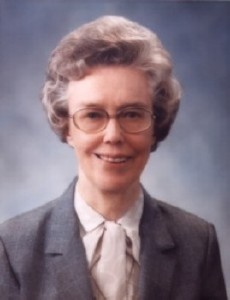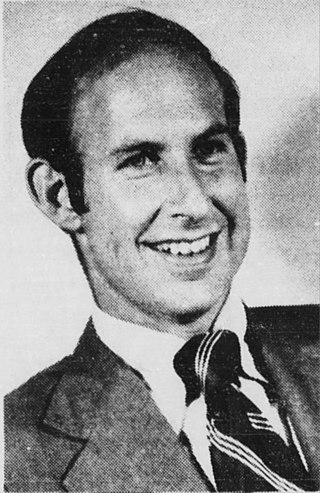Related Research Articles

The Freedom From Religion Foundation (FFRF) is an American nonprofit organization that advocates for atheists,agnostics,and nontheists. Formed in 1976,FFRF promotes the separation of church and state,and challenges the legitimacy of many federal and state programs that are faith-based. It supports groups such as nonreligious students and clergy who want to leave their faith.

Michael Arthur Newdow is an American attorney and emergency medicine physician. He is best known for his efforts to have recitations of the current version of the Pledge of Allegiance in public schools in the United States declared unconstitutional because of its inclusion of the phrase "under God". He also filed and lost a lawsuit to stop the invocation prayer at President Bush's second inauguration and in 2009 he filed a lawsuit to prevent references to God and religion from being part of President Obama's inauguration.
The National Day of Prayer is an annual day of observance designated by the United States Congress and held on the first Thursday of May,when people are asked "to turn to God in prayer and meditation". The president is required by law to sign a proclamation each year,encouraging all Americans to pray on this day.
Kenneth Francis Ripple is a Senior United States circuit judge of the United States Court of Appeals for the Seventh Circuit.
League of United Latin American Citizens v. Perry,548 U.S. 399 (2006),is a Supreme Court of the United States case in which the Court ruled that only District 23 of the 2003 Texas redistricting violated the Voting Rights Act. The Court refused to throw out the entire plan,ruling that the plaintiffs failed to state a sufficient claim of partisan gerrymandering.

Ann Louise Aiken is an American attorney and jurist in the state of Oregon. A native Oregonian,she has served as a state court judge of the Oregon circuit courts and worked in private legal practice. She is a senior United States district judge of the United States District Court for the District of Oregon. She served as chief judge of the court from February 1,2009 to January 31,2016.
Same-sex marriage has been legal in Florida since January 6,2015,as a result of a ruling in Brenner v. Scott from the U.S. District Court for the Northern District of Florida. The court ruled the state's same-sex marriage ban unconstitutional on August 21,2014. The order was stayed temporarily. State attempts at extending the stay failed,with the U.S. Supreme Court denying further extension on December 19,2014. In addition,a state court ruling in Pareto v. Ruvin allowed same-sex couples to obtain marriage licenses in Miami-Dade County on the afternoon of January 5,2015. In another state case challenging the state's denial of marriage rights to same-sex couples,a Monroe County court in Huntsman v. Heavilin stayed enforcement of its decision pending appeal and the stay expired on January 6,2015. Florida was the 35th U.S. state to legalize same-sex marriage.
Same-sex marriage has been legally recognized in Wisconsin since October 6,2014,upon the resolution of a lawsuit challenging the state's ban on same-sex marriage. On October 6,the U.S. Supreme Court refused to hear an appeal of an appellate court ruling in Wolf v. Walker that had found Wisconsin's ban on same-sex marriage unconstitutional. The appellate court issued its order prohibiting enforcement of the state's ban on same-sex marriage the next day and Wisconsin counties began issuing marriage licenses to same-sex couples immediately. Wisconsin had previously recognized domestic partnerships,which afforded limited legal rights to same-sex couples,from August 2009 until they were discontinued in April 2018.

Rudolph Thomas Randa was an American judge. He was a United States district judge in the Eastern District of Wisconsin for the last 24 years of his life. He was Chief Judge of the Eastern District of Wisconsin from 2002 until October 2009. Prior to his appointment to the federal court,he was a Wisconsin Circuit Court Judge and served one year on the Wisconsin Court of Appeals.

Cornelia Groefsema Kennedy was a United States circuit judge of the United States Court of Appeals for the Sixth Circuit.

Lynn Steven Adelman is an American lawyer,judge,and former politician. He has served as a United States district judge for the United States District Court for the Eastern District of Wisconsin,since December 1997. Earlier in his career,he served 20 years in the Wisconsin State Senate,representing southwest Milwaukee County and neighboring municipalities.
William C. Griesbach is a senior United States district judge for the United States District Court for the Eastern District of Wisconsin. He was appointed to the federal court in 2002,by President George W. Bush,after having served seven years as a Wisconsin circuit court judge in Brown County.

William Martin Conley is an American lawyer who serves as a United States district judge of the United States District Court for the Western District of Wisconsin.
The clergy housing allowance is an allowance paid to ordained ministers and rabbis in Canada and the United States.
This is a list of notable events in the history of LGBTQ rights that took place in the year 2014.

Wolf v. Walker is a federal lawsuit filed in February 2014 that challenged Wisconsin's refusal to grant marriage licenses to same-sex couples,its refusal to recognize same-sex marriages established in other jurisdictions,and related statutes. In June 2014,Judge Barbara Crabb of the U.S. District Court for the Western District of Wisconsin ruled for the plaintiffs. In the week before she stayed her decision,county clerks in 60 of the state's 72 counties issued marriage licenses to same-sex couples and some performed marriage ceremonies for them. The state appealed her decision to the Seventh Circuit Court of Appeals,which affirmed her opinion in a unanimous decision on September 4. The state requested a writ of certiorari from the U.S. Supreme Court,which was denied on October 6. Same-sex marriages resumed after the Seventh Circuit issued its mandate the next day.

Brad Schimel is an American lawyer,judge,and Republican politician. He was the 44th attorney general of Wisconsin,serving from 2015 to 2019. He was defeated seeking re-election in 2018,and was subsequently appointed a Wisconsin circuit court judge in Waukesha County,by Governor Scott Walker. Schimel is seeking election to the Wisconsin Supreme Court in the 2025 Spring election. He also previously served as district attorney of Waukesha County.
Gill v. Whitford,585 U.S. 48 (2018),was a United States Supreme Court case involving the constitutionality of partisan gerrymandering. Other forms of gerrymandering based on racial or ethnic grounds had been deemed unconstitutional,and while the Supreme Court had identified that extreme partisan gerrymandering could also be unconstitutional,the Court had not agreed on how this could be defined,leaving the question to lower courts to decide. That issue was later resolved in Rucho v. Common Cause,in which the Court decided that partisan gerrymanders presented a nonjusticiable political question.
Benisek v. Lamone,585 U.S. ____ (2018),and Lamone v. Benisek,588 U.S. ____ (2019),were a pair of decisions by the Supreme Court of the United States in a case dealing with the topic of partisan gerrymandering arising from the 2011 Democratic party-favored redistricting of Maryland. At the center of the cases was Maryland's 6th district which historically favored Republicans and which was redrawn in 2011 to shift the political majority to become Democratic via vote dilution. Affected voters filed suit,stating that the redistricting violated their right of representation under Article One,Section Two of the U.S. Constitution and freedom of association of the First Amendment.
Rucho v. Common Cause,No. 18-422,588 U.S. 684 (2019) is a landmark case of the United States Supreme Court concerning partisan gerrymandering. The Court ruled that while partisan gerrymandering may be "incompatible with democratic principles",the federal courts cannot review such allegations,as they present nonjusticiable political questions outside the jurisdiction of these courts.
References
- 1 2 Barbara Brandriff Crabb at the Biographical Directory of Federal Judges , a publication of the Federal Judicial Center .
- ↑ "Federal Judge Rules Day of Prayer Unconstitutional". Fox News. 2010-04-15. Retrieved 2013-08-15.
- ↑ Legal challenge to National Day of Prayer thrown out, The Christian Science Monitor
- ↑ Court Dismisses Challenge to National Day of Prayer, USA Today
- ↑ Doug Erickson (2013-11-23). "Judge strikes down law that gives clergy members tax-free housing allowances". Wisconsin State Journal. Retrieved 2013-11-02.
- ↑ Freedom From Religion Found., Inc. v. Lew, 983 F. Supp. 2d 1051 (W.D. Wis. 2013), vacated, 773 F.3d 815 (7th Cir. 2014).
- ↑ "Court overturns same-sex marriage ban". WISC-TV. 2014-06-06. Archived from the original on 2014-06-06. Retrieved 2014-06-06.
- ↑ Johnson, M.L. (June 7, 2014). "Gay couples rush to marry at Wisconsin courthouses". Associated Press. Retrieved June 7, 2014.
- ↑ "Wolf v. Walker - 7th Circuit Court Opinion Affirming District Court Ruling". American Civil Liberties Union. Retrieved Oct 17, 2019.
- ↑ Michael Wines (22 November 2016). "Judges Find Wisconsin Redistricting Unfairly Favored Republicans". The New York Times . p. A1. Retrieved 24 November 2016.
- ↑ de Vogue, Ariane (June 18, 2018). "Supreme Court sidesteps partisan gerrymandering cases, let maps stand for now". CNN . Retrieved June 18, 2018.